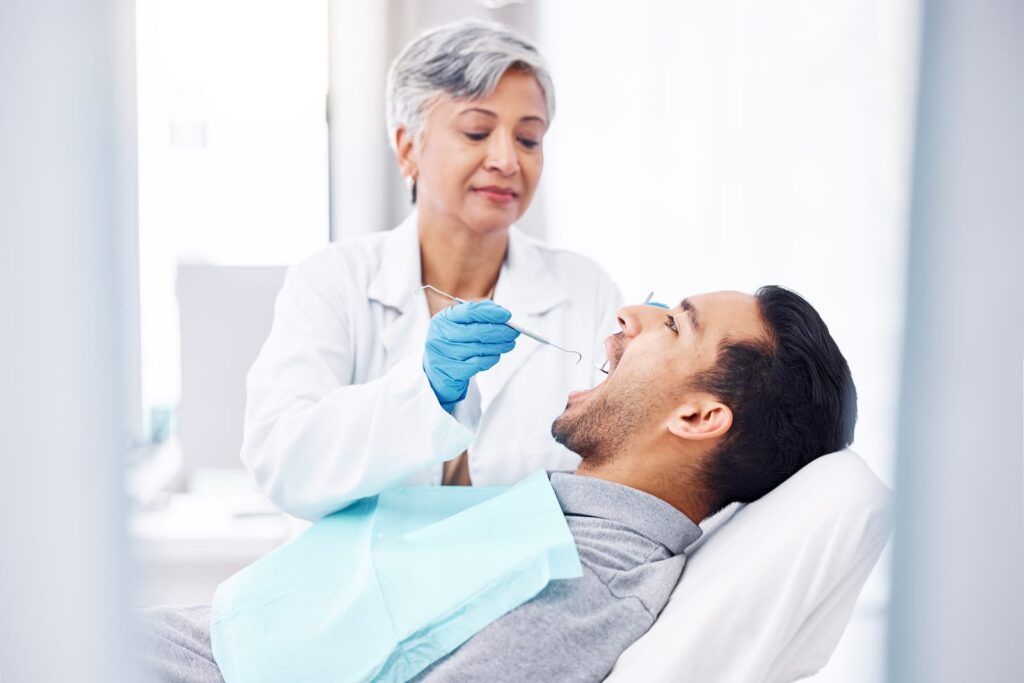23rd March 2024
When Should You Contact An Emergency Dentist?
Stay ahead of the pain: Know when to seek an emergency dentist in York
When unexpected dental pain strikes, it can feel like your whole world is on pause. Whether it’s a sudden ache, a broken tooth, or an unexplained swelling, dental emergencies can not only disrupt your day but also signal serious health concerns.
So, it’s vital to know when these incidents require the expertise of an emergency dentist. Understanding the signs and taking swift action can be the difference between saving a tooth and enduring a more complex procedure.
In this article, we’ll guide you through the crucial signs that show it’s time to seek urgent dental care, ensuring you’re prepared to act quickly when every moment counts.
What Is Considered a Dental Emergency?
Of course, before you can know when it’s the right time to call an emergency dentist, you need to first understand what is considered an emergency dental situation.
This is any oral health issue that demands immediate attention to alleviate severe pain, stop ongoing tissue bleeding, or save a tooth. This can range from a knocked-out tooth due to an accident to a severe infection that threatens your overall well-being.
Although not all dental issues are emergencies, being able to distinguish between a standard dental concern and an urgent one is crucial for your health and peace of mind.
Common emergencies include unbearable toothaches, chipped or broken teeth, lost fillings or crowns, and abscesses or infections that can cause intense pain and swelling.
If you experience any of these symptoms, it’s imperative to seek professional help swiftly. Ignoring these signs can lead to more severe complications, impacting not just your oral health but your general health too.

When Should You Seek Emergency Dental Care?
Although we have given you a snapshot in the section above, let’s further hone in on this, so you can correctly identify some signs that signal an emergency dental appointment. You need to contact your emergency dentist right away if you are experiencing the following.
Intense, Persistent Toothache: If the pain is severe and disrupts your daily activities, seek immediate dental treatment.
Broken, Chipped, or Knocked-Out Tooth: Immediate attention is needed, especially if there’s significant pain or bleeding. Prompt action can be crucial for saving a knocked-out tooth.
Swelling: If you experience swelling in your mouth or face, it could indicate an infection that needs urgent treatment. Don’t delay any longer; you should see a dentist!
Signs of Infection: Fever, a bad taste in the mouth, or oozing from around a tooth are indicators that you should seek emergency dental treatment to prevent more serious health issues.
What Should You Do If You Have An Urgent Dental Issue?
When you have an urgent dental need, taking immediate and appropriate action can make a significant difference in your outcome. So, if you notice any of the symptoms above, you should contact your dental professional immediately.
Explain Your Symptoms
When you contact a dental professional, be clear and detailed about your symptoms. Mention the severity of the pain, the location, any triggers that increase discomfort, and any other associated symptoms. This information helps the dental team prepare for your arrival and offer specific advice over the phone.
Treat Your Pain While You Wait
While waiting for your dental appointment, you can take some steps to manage your pain. Over-the-counter pain relievers can be effective, but be sure to use them as directed and inform your dentist about what you’ve taken. Applying a cold compress to the outside of your cheek can also help reduce pain and swelling.
Be Gentle with Your Tooth
If your emergency involves a damaged or knocked-out tooth, handle it with care. For a knocked-out tooth, try to hold it by the crown (the part that’s visible in the mouth) and not the root.
If it’s dirty, gently rinse it with milk or water, but don’t scrub it. If possible, try to place the tooth back in its socket, but if that’s not feasible, keep it moist by placing it in milk or your mouth, next to your cheek, until you can get professional help.

Why Immediate Care Is Important Here
Immediate care in these situations is crucial because it significantly enhances the chances of a successful outcome, particularly in saving a tooth or preventing further complications.
Prompt treatment can alleviate severe pain more quickly, reduce the risk of infection, and limit the extent of dental damage.
In situations like a knocked-out tooth, time is a critical factor; immediate intervention can often lead to the tooth being saved. Moreover, addressing these emergencies swiftly can prevent the situation from escalating into more serious health concerns in the future.
Getting a Reliable Local Emergency Dentist in York
When facing an urgent dental issue in York, having a trusted and reliable local dentist can make all the difference.
At The York Dental Suite, we understand the urgency and discomfort of these situations, and our dedicated team is committed to providing swift and effective care to alleviate your pain and address the issue at hand.
Equipped with advanced technology and a team of experienced professionals, we ensure timely and effective treatment, prioritizing emergency cases to provide same-day appointments when needed.
In need of an emergency dentist now? Contact us at 01904 937 041
Tips on How to Prevent Emergencies
Preventing dental urgencies is key to maintaining good oral health and avoiding unexpected trips to the dentist. Here are some proactive tips to help you minimize the risk of emergency appointments:
- Maintain Regular Dental Check-ups: Regular visits to your dentist for check-ups and cleanings are crucial. These appointments allow us to detect and address potential issues before they escalate into emergencies.
- Practice Good Oral Hygiene: Brushing twice a day, flossing daily, and using mouthwash can significantly reduce the risk of decay and gum disease, common culprits behind these emergencies.
- Use Protective Gear: If you engage in sports or activities that could result in a blow to the face, wear a mouthguard to protect your teeth from injury.
- Avoid Hard and Sticky Foods: Chewing on hard candies, ice, or other hard objects can crack or chip your teeth. Similarly, sticky foods can dislodge fillings or crowns.
- Don’t Use Teeth as Tools: Avoid using your teeth to cut things, open bottles, or hold objects. This can lead to chips or fractures.
- Educate Yourself on Dental First Aid: Knowing what to do in case of an emergency, like a knocked-out tooth, can improve the outcome while you seek professional care.